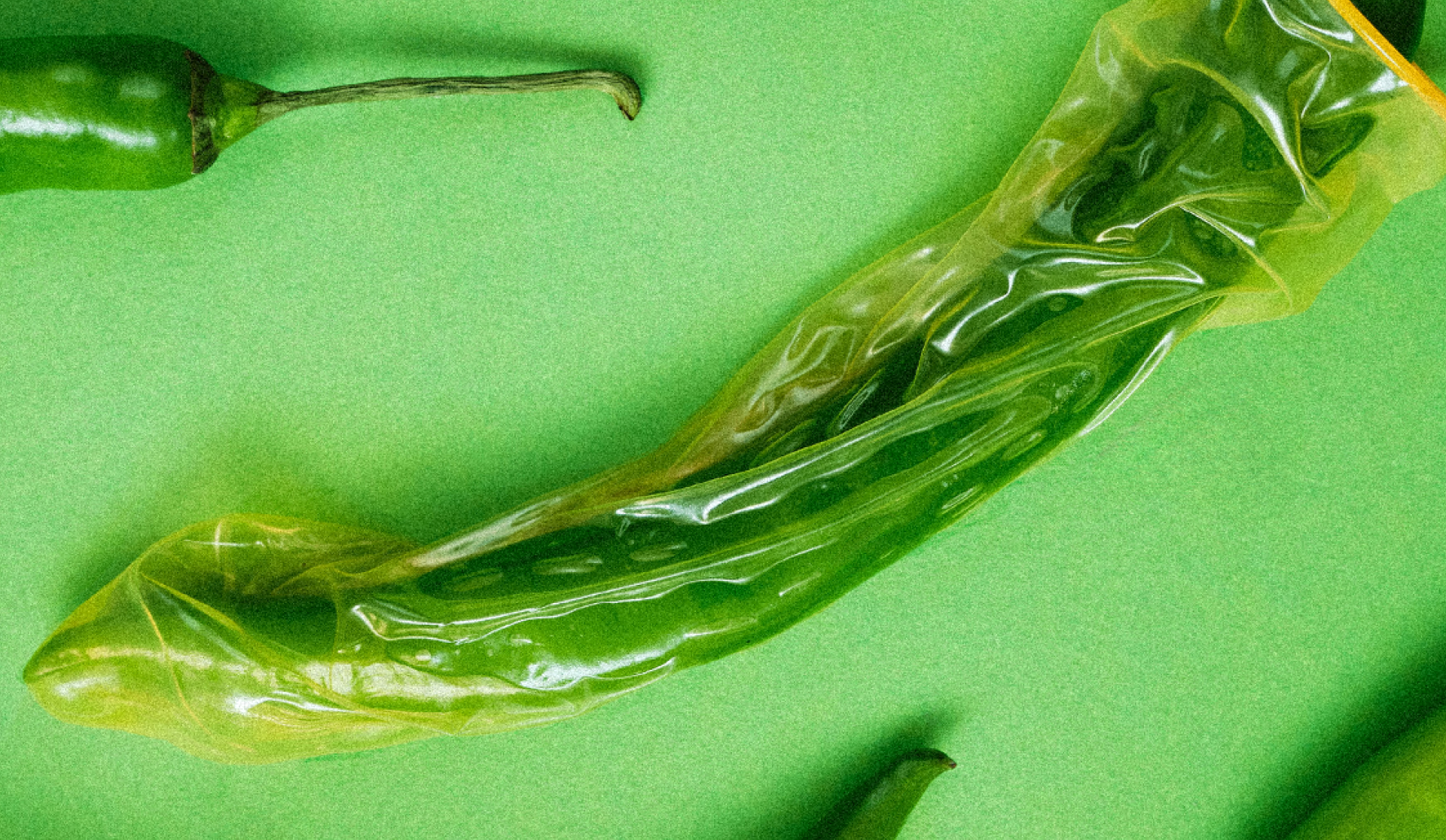
Plangdi Neple explores the existential finances and impossible negotiations of sex amidst economic collapse in Nigeria.
A few weeks into the year, I gave up sex for a pair of boots.
If that sounds outrageous, it really shouldn’t. Chocolate brown chelsea boots, styled correctly, can make anyone look like sex. And if forced to pick between possibly mediocre sex, or looking like sex for at least two years, I’ll take the boots with no remorse.
Two years ago, or even a year ago, I might not have thought this way. Beyond the hurdle of finding a willing partner, it was relatively easy to have sex. I barely had to consider the cost of transportation, condoms, and lube, or even medication, in case I caught something.
It was simple, until it wasn’t.
In November 2024, I was checking out of a supermarket when my eyes snagged on the boxes of condoms lining the shelf behind the cashier. A smile pulled at my lips. I remembered how a guy I’d gone to see didn’t have condoms and lube and we ended up just cuddling and making out.
I stretched past the cashier, grabbed the lube first, and placed it on the counter.
“How much is this please?” I asked.
“Five five,” she responded. 5,500 Naira for a 120ml bottle.
That may not sound like a lot. In the grand scheme of things, it is a one-time investment—something I wouldn’t have to buy again until it finished, which could take a while, depending on how much sex I would be having.
None of that mattered to my brain.
In January earlier that same year, I’d gotten a raise, one that put me in the top 2.4% of earners in Nigeria. I still remember the shopping spree that followed; the shoes I bought then are some of my favorites to this day. One would think I should not be bothered by a price tag of 5,500.
However, in the first half of 2024, the Nigerian economy had reached a new low. The Naira depreciated by 40.42% relative to the US dollar. And it kept going—ensuring a bleak 2025. It turned into a game of who could predict how much it would increase the following day. Prices of goods quadrupled, and the cost of living became the same as a black market kidney. A friend of mine considered moving back home due to rent prices—at least he had experience dealing with his parents’ wahala (overbearance), as opposed to the eye-gouging price tags ruling the day. Parents pulled children from too-expensive schools, market traders reduced by a significant fraction, and those who remained had to justify their new quadrupled prices to customers daily. Garri, once a poor man’s snack, became a luxury. We were no longer living, just surviving.
In times like this, spending over five thousand Naira on lube felt like a waste, when the money could go toward transport to and from work, could buy a meal, could be the top-up one needed to buy electrical units or fuel for their generator. Or medication for a sick child or parent.
That was where my brain was, when the price fell from the cashier’s lips. I’d already thought of five things I could do with the money. Lube? Or food? Sex or survival?
Leaving the store that day, I had two thoughts: I’d have to make similar decisions over and over again. And did other gay people have to make these same choices too? What did it mean for us?
*
I wouldn’t blame anyone for never having considered how expensive sex can be. It’s a profoundly unsexy thought to have when deciding which Grindr pic makes your asshole look tighter. Yet, almost everyone has had to face the thought of how much money they are about to spend on a hookup.
Think of the last time you had sex. You had to get a condom (approx. 4000 naira for a pack of 3), lube (5500 naira), pay for transport (variable, depending on your choice of public transport or a taxi). Overall, you would spend at least 10,000 Naira, discounting renting a room somewhere, if need be. By the time you tally all the costs, you’ve amassed a bill enough for 20 liters of diesel. Go figure.
Based on an informal survey I conducted, 72.7% of gay men in the country have had to reduce sexual or romantic encounters due to economic constraints.
Everyone has had to give things up to cope with inflation. But for us, it is more meaningful than simply budgeting.
There’s a reason it’s common to assume gay men love sex; many of us do. But for people whose existence is criminalized, as it is in Nigeria, sex has become a coping mechanism, a form of expression and community building. For the oppressed, anything pleasurable becomes a protest.
We have been taught to be ashamed of ourselves, to hate our bodies and urges. Here, two men cannot hold hands over a candle lit dinner. A transgender woman has to do everything possible to “pass” as cisgender, and not have her womanhood questioned. Queer gatherings can lead to jail time, or death.
In such a climate, good sex can be one of the quickest ways to feel a euphoric sense of connection with other people. Emphasis on good.
It would be easy to say we should be defiant, say “fuck ’em all” (pun intended), and just do what we want. I dare you to tell us that when you’ve had to decide between selling out your boyfriend or risk dying—with a gun’s cold metal kissing your temple, or a machete caressing the veins of your neck. Or strangers’ shoes and feet digging into your midsection, threatening to demolish your organs.
*
There are safe spaces, yes. We can book private rooms, visit friends or partners who have their own accommodation, and there are parties and gatherings hosted by us in secluded spaces where we can be ourselves. If you want to get creative, there are bushes (true story from a friend), back seats of cars on barely-used roads (true story from myself), stairwells, and more. I went to a bowling alley with a friend, and our outing was tainted by the side-eyes we got, the whispers I could feel on my neck, because I decided not to squash my feminine side that day. I haven’t been back there in close to a year.
63% of the queer people I surveyed reported a reduced occurrence of meetups due to the increased financial difficulty of securing private spaces. To quote an anonymous source:
“In a place like Nigeria, financial freedom creates avenues to have safer and more personalized experiences in a place. So when you're boxed, you don't mind paying more for queer-friendly spaces or high end spaces where your money can protect you to some degree. However, financial constraints rob you of this opportunity.”
We are forced to pay more for the protection afforded to heterosexuals without question, a protection invisible to their privilege. We have to meticulously engineer our safety and human rights, ripped away from us by the SSMPA, the law criminalizing same-sex marriage in Nigeria. I am unable to seek out pleasure, all because someone has decided I am less than human.
*
Lube or food? What does this seemingly silly question really mean for us? Over 80% of those surveyed have either been forced to delay or avoid hookups due to the costs.
Some of the people I spoke to have reported using dating/hookup apps more, despite the horror stories of “kito” situations, where homophobes infiltrate said apps to lure queer people into dangerous (and often life-threatening) situations. Others have given up on trying at all. The consequences will continue to reveal themselves. Yet, we will survive. We might find other things to replace sex with. Think of the last rave you attended. How feverish was the air? How did it feel to let go, to be unencumbered and transcendent? Was it as good as sex?
Lube? Or food? I’ll choose the food. But I put a little more effort into affording the lube these days. Because if sex is one of the ways I get to enjoy one of the fundamental parts of myself, a part others have decided is criminal, I'll be damned if I lose it.


